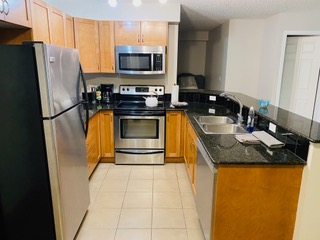





If you lose a job, even temporarily, it might mean you need to ask your landlord for some rent relief. The COVID-19 pandemic has definitely negatively impacted the economy and created a lot of uncertainty when it comes to business, and to life in general. It’s important that you understand your options when it comes to rent relief.
The best opportunity to secure your rent relief is to negotiate with your landlord. If you are financially impacted by COVID-19 and are unable to pay rent, speak with your landlord and explain your situation. There are many situations where landlords have allowed rent reductions and rent deferrals because of the coronavirus outbreak.
If your landlord does not agree to provide you with rent relief, then you can try negotiating the transfer of your last month’s rent to your current month’s rent. This is a good time to highlight any agreed terms like deferrals in writing. These contracts will help protect you as a tenant from sudden evictions and will assure the landlord that rent deferred will be paid later on in instalments.
Given the precarious economic situation that the country is in currently, rent deferral can give some individuals breathing room to those impacted by COVID-19. But it is also true that landlords might also be facing financial difficulties themselves. Landlords who have rented out their mortgaged condos might be able to get mortgage referrals but they would still need to pay maintenance fees. While you might seek out rent deferral, keep in mind that your landlord could be in the same situation as you.
When it comes to the financial government, they have not announced any measures to specifically address rent-related issues. They did implement CERB, but since this relief will take time to get to Canadians, the attention has been focused on provincial governments since rent regulation falls under its jurisdiction.
In British Columbia, there is an eviction freeze until further notice and a postponing of eviction orders which are already in place. However, there is no rent relief as tenants are still obligated
to pay their rent. The British Columbia government website encourages renters and landlords to work things out on their own.
If you’re having trouble with negotiating, then here are some more ideas for leverage in your favour:
– You have always paid your rent on time. If you have a good track record of paying your rent, then your landlord will most likely be more willing to hear you out.
– The rental property is in good condition. Keeping the property maintained will make all the difference, so you can mention this.
– You have not had any complaints from your neighbours. Being a good neighbour goes a long way, and if your property manager has not had to deal with any bad situations in the past, they will want you to stay on the property.
– Empty apartments still cost the property owner. When the apartment is vacant, then the property owner will lose money regardless. Remind them of this and how much time it also takes to find a new tenant.


Are you preparing to sell your house? You might want to consider performing these home improvements in order to secure a bigger price tag come closing time.
When you are preparing your home to sell in a competitive real estate market, it might not make sense for you to take on any big home improvement projects. Once you are sure that your house doesn’t need any major repairs, you can focus on some easy updates that can help make your home more appealing. Getting a kitchen or bathroom remodel might be out of budget, but there are still plenty of different ways you can make in key areas that will help get your home ready to sell.
Painting is one of the lowest cost improvements you can make, with the highest rate of return. When you are trying to sell your house, giving it a coat of neutral paint will help give your entire house a facelift, and buyers will love seeing a blank canvas. You can also enlist the help of a professional to get colour recommendations based on other features in your house, like the cabinets or floors.
You can invest a large amount of money if you want to get this done professionally, but if you want to go the DIY route, you can do that pretty cheaply yourself if you are handy with a paintbrush and have some time.
The outside appearance of your house is the first thing that your buyer will see, and it will give them their first impression of your house. Having an overgrown or patchy yard will be a huge turn-off. You should take care to remove any plants that are dead, and cut back plants that are overgrown. You can also keep your lawn looking fresh by re-sodding or planting grass seed, and you might want to do some edging to help create clean edges.
You can either hire professional landscapers to help you out, or you can roll up your sleeves and take care of removing anything dead by yourself. You don’t need to be a professional to buy some grass seed. Simply follow the directions for planting and you’ll be good to go.
Also Read: Buying and Selling a Home at the Same Time
Replacing your lighting fixtures throughout your home can be an easy update for a small investment. But it can make a big difference where appearances are concerned. If you’re looking to update your light fixtures, make sure to keep the colour palette consistent with your
home’s hardware. For example, you wouldn’t want to mix gold and silver tones together, but mixing metals like copper and bronze is fine. Consider the fact that older brass fixtures will be considered more of a dated look. If you are going to the trouble of updating these fixtures, then make sure that it results in a true update.
If you’re on a budget, don’t feel like you need to buy something fancy or expensive. You can simply just remove any huge, dated chandeliers and let the buyers use their imagination. Or switch it out for something smaller and simpler.















